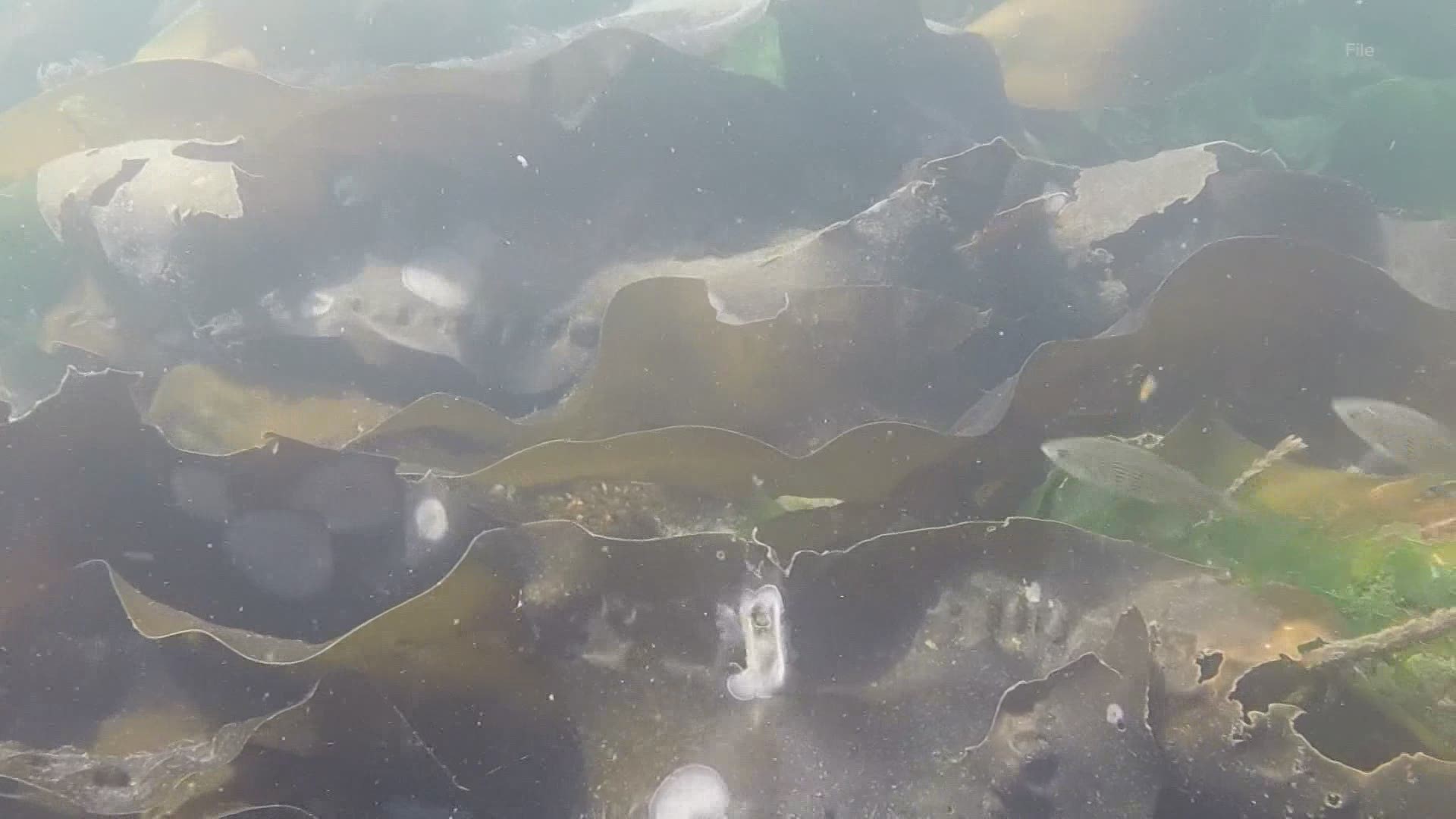SEATTLE — A new study found a huge loss of Washington’s iconic bull kelp in modern times is a consequence of human actions and climate change, according to the Washington State Department of Natural Resources (DNR).
Washington is home to 22 types of kelp and is a global hotspot for algae. It plays an important role for many aquatic plants and animals – from providing a place to find food or shelter to calming the force of rough currents and tides.
“Kelp is the base of our food chain,” said Helen Berry, a DNR marine ecologist with the Near Shore Habitat Program. “So if you care about salmon, if you care about orcas, if you care about birds, if you care about forage fish, then you don’t know it, but you care about kelp.”
Berry led a study of South Sound bull kelp, which used historical navigation charts and documents to identify kelp beds that have already been lost. And the team found a striking drop from the 1870s when Europeans began arriving here – a two-thirds loss of bull kelp in the South Sound.
You can read more about the study here.
Kelp was marked on navigation maps because it indicated shallow, rocky areas – places to avoid in a boat. This allows researchers to identify where kelp beds and forests grew historically and find which have disappeared.
Berry completed a similar study previously in the Strait of Juan de Fuca, finding kelp was stable there, and is currently working on another one between Seattle, Bainbridge and Whidbey Island.
Berry chalks the South Sound loss up to two key factors – warming waters from climate change and human impacts on water quality. Back in 2019, DNR sounded the alarm about the loss of kelp beds in the area.
“That’s tricky, because kelp is essentially a cold water species,” Berry said. “So that’s the bigger picture we struggle over, is how do we adapt when we’re expecting our climate to warm over time.”
But with a better knowledge of the historical distribution, they can focus on where to protect existing kelp forests and work to restore others.
“Kelp is really important; it’s an unsung hero,” Berry said. “And we’re losing it. However, we haven’t lost it entirely, and there are things we can do to conserve it and our ecosystem in Puget Sound."
For that reason, DNR is pursuing ways to reduce the impact on aquatic vegetation, and Berry has a couple recommendations: consider the impact of runoff from roads and infrastructure on water quality, keep fishing boats to the edge of kelp beds and if passing through kelp, cut your boat's engine. She adds if harvesting kelp, do so sustainably so it can regrow, and address climate change.

